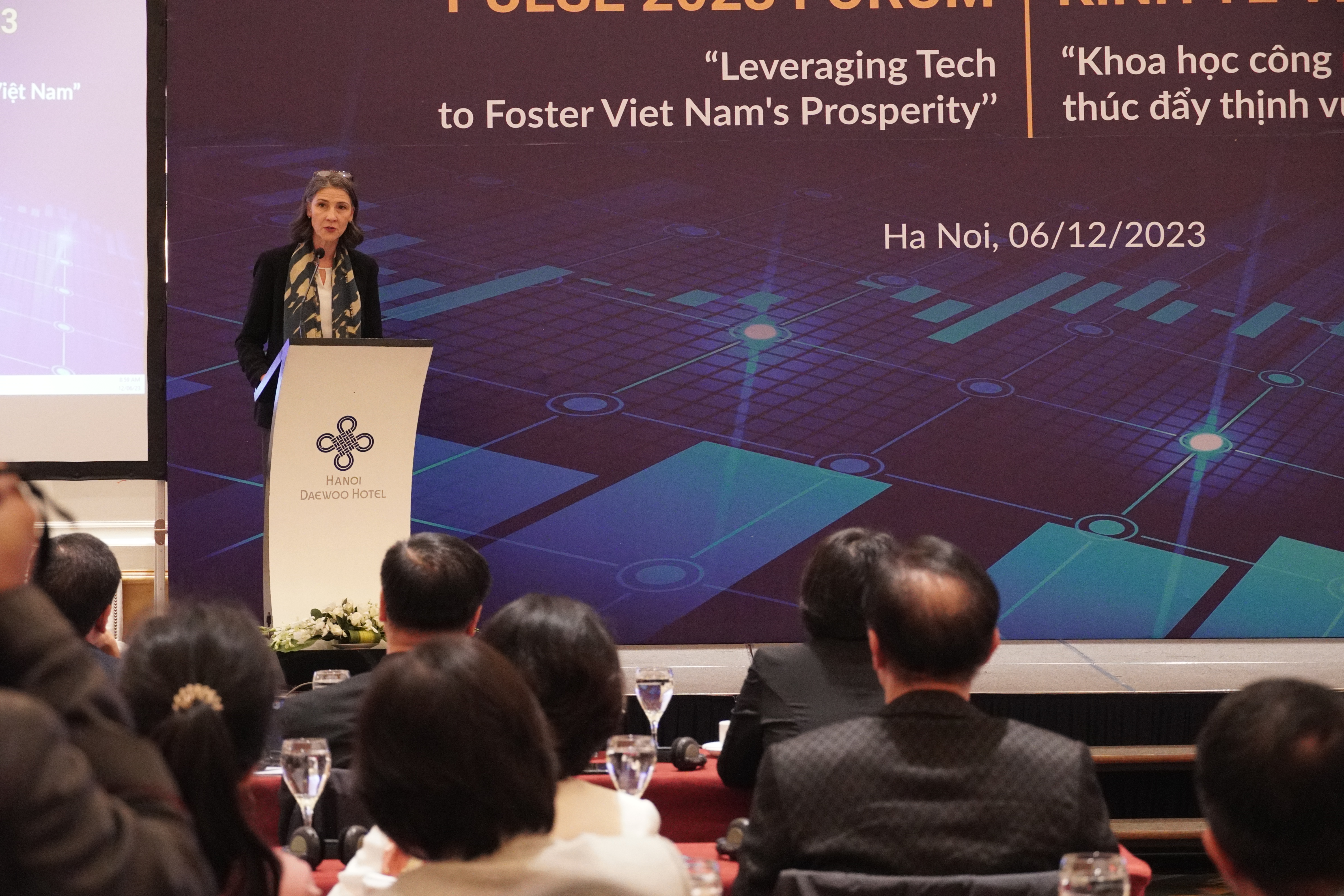Viet Nam Economic Pulse 2023
December 6, 2023

Ms Ramla Khalidi, Resident Representative, UNDP in Viet Nam
Dr Tran Thi Hong Minh, President, Central Institute of Economic Management, Ministry of Planning and Investment
Dr Luong Van Khoi, Vice President, CIEM,
Ms. Pauline Tamesis, UN Resident Coordinator
Representatives from ministries, research institutions and business;
Colleagues from UN agencies, Development Partners and media organizations;
Ladies and Gentlemen.
Good morning!
It is an honor to welcome you to the third Viet Nam Economic Pulse (or VEP), where we’ll be discussing ways to Leverage Technology to Foster Prosperity in Viet Nam.
The Ministry of Planning and Investment and UNDP launched VEP two years ago to create a new, informal discussion forum on Viet Nam’s economic situation and development policy. Our ambition was, and remains, to stimulate discussion of economic issues and include a wider array of voices than those usually heard at official gatherings of Government and development partners; to bridge the gap between development, business and academic communities, sharing information and perspectives on the major issues of the day. We sought to create a forum that would be forward-looking, reviewing recent developments with an eye toward their short and medium-term implications, while focusing on emerging topics that would likely feature prominently in economic discussions over the coming year.
Today’s VEP—the third in the series—addresses the role of technology in economic development, an issue that has taken on new significance this year. Technological innovation, the energy transition and shifts in geopolitical strategies have created historic opportunities for Viet Nam to accelerate economic transformation, penetrate new markets for higher value-added goods and services, and increase the sophistication and domestic content of exports. Viet Nam’s ability to capitalize on these opportunities will have important implications for the country’s ability to sustain productivity growth at higher level incomes—in other words, to avoid the middle-income trap.
On the economic front, we all know that 2023 was a challenging year for the global economy. Central banks around the world responded to price inflation with higher interest rates, which had a negative effect on demand growth and world trade. The government in Viet Nam responded nimbly to these challenges, maintaining domestic inflation within target and closely monitoring financial conditions. Our update this morning will provide more details on the macroeconomic situation this year and prospects for recovery in 2024.
We will hear the views of educators, scientists and business leaders on how Viet Nam can best seize on these opportunities, and confront the challenges it faces in its efforts to build technological capacity, attract investment in advanced technologies like semiconductors and artificial intelligence—to name just a few—, and create a business environment that stimulates innovation and competitiveness.
I look forward to today’s presentations and discussions, which I hope will help clarify the strategic choices facing Viet Nam in this era of rapid and profound economic, technological and political change.
Let me conclude by thanking CIEM, the speakers and panelists for your cooperation and support, and wish all participants rich and fruitful discussions, good health and great success.
Chuc suc khoe; xin cam on.

 Locations
Locations



